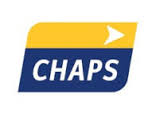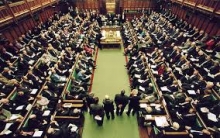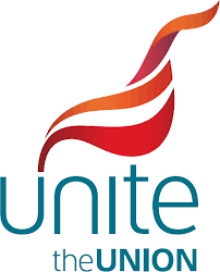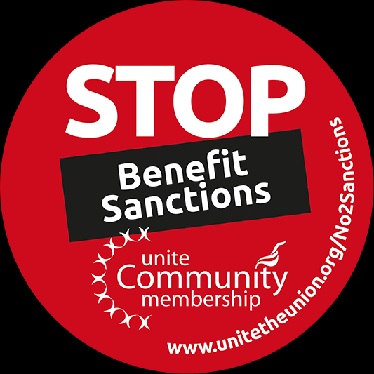Work TV
Watch our TV Channel dedicated to the ‘World of Work’. Explore our video library for informative videos featuring career opportunities at leading companies, franchising opportunities, further education and recruitment professions and their services.
Simon Collyer
Liberal Democrats Move To Stop Gov Bill Restricting Disability Benefits
Peers will today (Monday 27 March) vote on a motion tabled by the Liberal Democrats that would kill off Government proposals to severely restrict disability benefits.
The Government has announced a tightening of the criteria for claimants of Personal Independence Payments (PIP), which will see tens of thousands of people with mental health and anxiety conditions such as schizophrenia and post-traumatic stress disorder lose the benefit altogether.
Liberal Democrat peers have taken the rare step of tabling a motion that would kill off the proposals entirely, set to be voted on tomorrow evening.
Liberal Democrat Shadow Secretary of State for Work and Pensions Cathy Bakewell, who tabled the fatal motion, commented:
"The Government have made this change without any consultation of claimants or the organisations who represent them.
"It is a deplorable and underhand attack on the most vulnerable in our society. We must be prepared to stop it in its tracks.
"The Government's claim that they are returning to the original intention of the law is incorrect, mean-spirited and shows no understanding of those people trapped in their homes, too anxious to leave without support.
"I call on all peers today to back our efforts to kill this bill and force ministers back to the drawing board."
Plaid Cymru Challenge Labour Over Zero Hours Contracts
Plaid Cymru has attacked Labour AMs in the National Assembly for voting – for the 6th time in as many years – against a Plaid Cymru amendment to outlaw the use of zero hour contracts in the public sector in Wales.
Earlier this month, Labour voted as a block to again side with Conservatives, in defeating a Plaid Cymru amendment which would have committed the National Assembly and Welsh Government to ending their use across the public sector, particularly in areas such as social care.
Recent figures from 2016 show that more than 1 in 30 workers in Wales are on zero hour contracts, meaning almost 50,000 people across the country work under typically unstable and financially insecure arrangements. The explosion in zero hour contracts in recent years, has led to persistent Plaid Cymru efforts to outlaw the practice in areas where the Assembly has responsibility.
The amendment, tabled by Plaid Cymru for the debate on March 1, called “upon the Welsh Government to ban the use of zero hours’ contracts in all devolved Welsh public services.”
Following the debate, Plaid Cymru’s Bethan Jenkins, Assembly Member for South Wales West and Plaid’s spokesperson said: “Following another Labour betrayal, it’s only the Party of Wales which now represents working people in Wales”
“Plaid Cymru once again offered motions which would end the use of zero hour contracts in public services in Wales. Once again – for the 6th time – Labour Assembly Members voted in tandem with the Tories against banning zero hour contracts.
“Labour members got up to contribute to the debate where they attacked the Conservatives for the explosion in zero hour contracts, they expressed their sympathy with people stuck on these damaging and financially insecure working arrangements. But they still voted against the ending of zero hour contracts.
She added: “This proves yet again that Labour’s supposed values of being the party of working people mean nothing, because when they’ve had the chance to match warm words with actions, in this Assembly, they have refused to stand up for the people they claim to represent.
“It’s clear that Plaid Cymru are now the party of working people in Wales.
“Plaid Cymru offered important amendments which clearly demonstrated our commitment to fair, stable and well-paid working rights. Our votes have matched our words and they always will.
“We will continue to press for decent working conditions for all in Wales, working to improve the financial security and well-being of everyone across the country.”
Easter Break for our Fantastic, Essex University, Student Volunteers
ABC progress is going well indeed and I would like to thank all those students past and present who have done such an outstanding job. We are of course talking about our student team at Essex University, Students Union, VTeam which stands for volunteers. The team have been doing an amazing job, adding organisations that assist the unwaged or those on low incomes to our ABC directory.
We would especially like to thank Tomas KASIULIS, Volunteering Coordinator and Master’s Degree holder [former] student at Essex University, who now works for the EU Students Union, who has done a simply amazing job managing this team.
And we must personally thank our very talented students who have taken part; Aishwarya BALAN, Mihaela-Georgiana MIHAILESCU, Isabel BULIANI, Vilius GUDZIUNAS, Joanie DE MURO, Aiste RAPALAVICIUTE, Ugne KOMZAITE, Carlo GENJELIAN and Cherry LAM.
Our directory is still in its infancy, however it is growing steadily. This directory will be built-up, [especially] during the autumn, as the summer term is largely occupied with exams and revising.
We are planning to grow our student team in the future and if you are a student looking for work experience, please just send an email to this address and we can tell you more about the opportunities on offer: This email address is being protected from spambots. You need JavaScript enabled to view it. Our students get a case study and it is a great endorsment, when you have to start looking for a full-time career. We think so anyway.

Image: Essex University, Students Union, VTeam member in action.
In a week that has seen terrorist tragedy in London, we are proud to be able to point to these young people and their contribution to humanity. Just about as far as you can get from the attitude of those whose goal it is to kill and maim total strangers, who do not share their point of view.
Lastly, we are taking our team in June on a sailing voyage from Brightlingsea up the River Colne to the fabulous Anchor Pub on the waterfront at Rowhedge. A pub known for its outstanding food. Volunteers deserve to be rewarded for their contribution and this is our way of saying: - THANK YOU.

Image: Our sailing vessel a Westerly Griffin.

Image: Our Destination the Anchor Pub in Rowhedge known far and wide for its great food.

Image: Inside the Anchor Pub.

Image: We will be leaving Brightlingsea the sailboats home port.

Image: Brightlingsea Waterfront.

Image: Essex University Sailing Club. Brightlingsea
We thought we better finish with some appropriately salty music. Take it away Procol Harem:
Thursday 30th March 2017 Unite National Day of Action Against Sanctions
More and more people are facing benefit sanctions say Unite the Union. Half a million people have had their benefits suddenly stopped by sanctions in the last 12 months. That’s half a million people, many of whom have been plunged into poverty, unable to heat their homes or even eat. How is this meant to help prepare people for work say Unite?
To this end they have organised a day of protests. Thursday 30th March 2017.
If you click on the logo below that will take you to the page where you can find more information. We will bring you more news as we go:
Cheques Set to Be Cleared Same-Day
Cheques paid into your account will soon be able to be cleared the same day. Currently cheques can take as much as six days to clear. These changes will be phased in from October this year. This development has come from the Cheque and Credit Clearing Company.
Several banks - including Barclays and Lloyds - allow their customers to pay in cheques via pictures on their banking apps. However, this can only happen when the cheque is issued by the same bank.
Now cheques, can be cashed by cheque cashing companies like Cash Generator or Cash & Cheque Express that change a fee and organisations like Cash Converter.
For people with a poor credit history the Coop Bank and Post Office provide basic bank accounts.
![]()
Bacs
Bacs Payment Schemes Limited Bacs has been maintaining the integrity of payment related services since 1968, with responsibility for the schemes behind the clearing and settlement of UK automated payment methods, Direct Debit and Bacs Direct Credit. A membership company limited by Guarantee, Bacs currently has 16 members from the UK, Europe, and the US. Bacs also provides managed services for third parties, such as the Cash ISA Transfer Service, and the company owns and manages the Current Account Switch Service which has 43 direct participants.

CHAPS
CHAPS Clearing Company Limited. CHAPS are the UK’s same day high value payment system for both wholesale financial and retail payments. Payments of any value are settled individually and irrevocably intraday in central bank funds, transferred over SWIFT. CHAPS are an international scheme focused on systemically important, high value and time-critical payments. Currently 24 domestic and international financial institutions are Direct Participants, with a high level of future joiners planned, the widest Direct Participation base of the UK schemes. These serve over 5,000 Indirect Participants. CHAPS is used by banks, building societies and other payment service providers to pay each other in wholesale financial transactions and international sterling flows, accounting for most of CHAPS’ value.

The Faster Payments Scheme Limited
Operated by Faster Payments Scheme Ltd, enables internet, mobile and telephone banking payments as well as standing order payments to move from account to account, normally within seconds, 24 hours a day, 365 days a year. As at the end of 2016 there are 12 direct settling participants, with a number more intending to join in 2017. Given its scale and reach, it is considered one of the most advanced real-time payment services in the world. Cheque and Credit Clearing Company. The Cheque and Credit Clearing Company has managed the cheque clearing system in England and Wales since 1985 and in Scotland since 1996. As well as clearing cheques, the system processes bankers’ drafts, postal orders, warrants, government payable orders and travellers’ cheques. The company also manages the systems for the clearing of paper bank giro credits, euro cheques (drawn on GB banks) and US dollar cheques (drawn on GB banks). There are 11 participants in the cheque clearing system and the credit clearing system, 10 in the euro debit clearing system and 5 participants in the currency clearing system.

The Belfast Bankers’ Clearing Company Limited (BBCCL)
The Belfast Bankers' Clearing Company was formed in May 2007 as a means of formalising existing rules and standards for sterling paper clearings and Euro debit clearing in Northern Ireland, and has 4 members. The role of the Company is to maintain the integrity of the clearing arrangements and ensure the system is efficient and effective.
It is also worth noting:
There are three main types of cheque fraud:
Counterfeit – a cheque that has been created on non-bank paper to look genuine. It relates to a genuine account, but has been created and written by a fraudster for the purposes of committing fraud.
Forgery – a genuine cheque, however the signature is not that of the account holder. The fraudster has forged the signature by signing the cheque themselves.
Fraudulently altered – a genuine cheque made out by the genuine customer but it has been altered by a fraudster before it has been paid in (e.g. by altering the recipient’s name on the cheque or the amount. It is no longer a genuine cheque).
Sir Philip Green in Line For £15 Million Refund From BHS Pension Payment
Sixteen of the best-off former BHS executives set to benefit most from Sir Philip’s out-of-court settlement
A first look at the detail of Sir Philip Green’s out-of-court settlement with TPR on the BHS pension fund deficit by the Work and Pensions Committee reveals a lot of variation around the headline “88% of promised benefits” figure, with a small number of the highest paid former managers set to do best out of the deal.
Initial analysis shows that if there is 90% take-up of the “winding-up lump sum” or WULS option offered as part of the settlement Sir Philip is in line to get a refund of £15 million from the £363 million settlement. 90% was the estimate of take-up of the same option in the Project Thor proposed pension restructuring made by Sir Philip’s own advisers, Deloitte.
Sir Philip’s built-in refund begins with the very first lump sum taken, so even if double the number of eligible people expected choose not take the lump sum option, he will still get over £13 million back.
The headline figure that scheme members will receive 88% of their promised benefits hides a great deal of variation. Owing to less generous indexation in the new scheme, some pensioners will receive less than 80% of what they would have received under BHS scheme rules.

Image: Sir Philip Green
Those that do best are the 16 people with the best pensions as they would have been subject to the PPF cap, which has been removed as part of the settlement and will not be applied in the new scheme. The cap exists to incentivise the highest paid executives in a firm, with the highest pension benefits, to take care of the pension fund and prevent it falling into the PPF.
Had the scheme gone into the PPF then members would have received, on average, 69% of promised benefits.
Frank Field MP, Chair of the Committee, said: “I hope Sir Philip will recycle any refund back into the scheme as BHS pensioners will still be facing cuts in the benefits for which they paid.
“It is also clear that Sir Philip prioritised his loyal senior managers, who have had the PPF cap on high pension benefits completely removed. That measure was designed to encourage those in positions of influence to urge prudence and responsibility; I would be worried if TPR was content to see it jettisoned as a matter of course. Those who do far less well out of the settlement are the ordinary staff of working age, many of whom lost will have lost their jobs as well.
“HMRC will not tell us what the tax implications of this settlement are but I fervently hope the public purse will not be missing out in the same way it does by the Greens’ complex offshore business arrangements.”
The Committee is publishing the correspondence with HMRC on the tax implications of the settlement, and follow up questions to The Pension Regulator:
Letter-from-Frank-Field-to-Jon-Thompson-re-tax-implications-of-BHS-settlement-8-3-2017
Letter-from-Jon-Thompson-to-Frank-Field-re-tax-implications-of-BHS-settlement-16-3-2017
Letter-from-Frank-Field-to-Lesley-Titcomb-re-out-of-court-BHS-pension-settlement-20-03-2017
Full inquiry details: BHS inquiry and Pension Protection Fund and Pensions Regulator
Low Pay Commission Autumn Research
This is from the Resolution Foundation report you can download below.
From its announcement at the Summer Budget in July 2015, it was clear that the National Living Wage (NLW) would be a transformative policy, significantly raising the legal wage floor for those aged 25 and over. Less clear however was how employers would react. Although the evidence base built up since the introduction of the National Minimum Wage (NMW) in 1999 provided a helpful guide, the initial rate of £7.20 and the planned trajectory to 60 per cent of median earnings of those aged 25 and over represented a step into the unknown for the UK’s wage floor and cautioned against overly simplistic assumptions about past responses being repeated.
Self-Employment and The Gig Economy
Work and Pensions Committee
Wednesday 22 March 2017 Meeting starts at 9.45am
Subject: Self-employment and the gig economy
- The disparities between self-employed people and employed people in terms of access to benefits and the steps that should be taken to alleviate these;
- The treatment of self-employed people in Universal Credit, especially in relation to the Minimum Income Floor, and options for reform;
- The extent to which JCP is equipped to help people start, maintain and develop viable businesses
At 9.45am:
Sam Windett - Head of Policy and Communications, Employment-Related Services Association (ERSA)
Matt Dooley – Enterprise Director, PeoplePlus
Andy Chamberlain – Director of Policy and External Affairs, Association of Independent Professionals and the Self-employed (IPSE)
At 10.30am:
Nigel Keohane – Director of Research, Social Market Foundation
Stuart Adam – Senior Research Economist, Institute for Fiscal Studies
Victoria Todd – Senior Technical Manager, Low Incomes Tax Reform Group
Benedict Dellot – Associate Director (Economy, Enterprise and Manufacturing), The RSA
US Executive Pay Surges
Median pay for the chief executives of 104 of the biggest American companies rose 6.8 percent for fiscal 2016 to $11.5 million, on track to set a post-recession record, according to a Wall Street Journal analysis.
“Twice as many companies increased their chiefs’ pay as reduced it, though a few high-profile bosses took substantial pay cuts, including Apple Inc.’s Tim Cook and General Electric Co.’s Jeff Immelt.”
Meanwhile figures out this week are expected to show that inflation is surging in Europe.
Half a Million People in Poverty - House Prices Up 259% Say ONS
Responding to official figures showing the number of people living in poverty in the UK now stands at 14 million, Campbell Robb, chief executive at the independent Joseph Rowntree Foundation (JRF), said:
“These troubling figures are warning signs we could be at the beginning of a sharp rise in poverty, with forecasts suggesting child poverty could rise further by 2021. If we are to make Britain work for everyone, getting to grips with high levels of poverty must be the starting point.
“Half a million more people – including more 200,000 pensioners and 100,000 children – are now living on incomes which mean they struggle to make ends meet and wake up every day facing insecurity and uncertainty.
“While employment is at record levels, the rising cost of living and freeze on benefits and tax credits mean ordinary working families are facing a tough outlook. In tight fiscal times, it is vital any additional support is directed at families who need it most.
“Lifting the freeze on working-age benefits and tax credits and allowing families to keep more of their earnings under Universal Credit will help ease the strain now.”
House Prices rise by 259% in under two decades:
Tim Farron, Leader of the Liberal Democrats, has responded to an ONS report on housing affordability in England and Wales, showing the median price paid for a residential property has increased by 259% between 1997 and 2016.
Tim Farron said: “This shows that for many people, especially the younger generation, buying a house could remain impossible throughout their lifetimes.
“Unless we build large numbers of new houses urgently, the government will shatter the dreams of millions of people desperate for a home of their own. The chronic lack of supply is kicking the ladder of aspiration.
“And with the construction industry complaining of a lack of labour even before Theresa May decided to go for a hard Brexit, it is difficult to see how those homes are going to be built. You can’t have a hard Brexit and a decent supply of houses.”
























